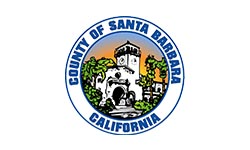Joomla CMS– A Great Example of Open Source Software
Joomla CMS – A Great Example of Open Source Software
What is Joomla CMS? CMS stands for content management systems. A content management system is a type of software that allows anyone to manage their own website without needing to know HTML, CSS or any other web development technology. A CMS enables you to edit your website like Microsoft Word allows you to edit your business documents. Joomla is one of the leading content management systems. It is a free CMS used by millions of websites around the world.
Some people might think that because it is free, it is likely to underperform a commercial CMS. While that is no doubt true in some cases, in this case, Joomla is actually more powerful, feature rich, extensible and useful than CMS’s which cost thousands of dollars. How could this be?
The reason Joomla has grown to be such a great piece of free software is that it is a successful “open source” project. Open source software is a movement within the software industry that is changing the way software is created and maintained. Instead of a single company paying a small set of developers to develop and maintain an application over time, open source software relies on thousands of unpaid developers who contribute to building an application a little bit at a time. Most of these developers are paid to write software for their day job and they contribute their expertise on nights and weekends to build a free application that anyone can use.
Open source means that the source code of the application is literally “open” and available for anyone to view or modify. This is a radical departure from commercial software where companies closely guard their source code because they consider it to be a trade secret and their own closely held intellectual property.
There are pros and cons to open source software and not all open source software is of the same quality. Some open source projects get very little developer support and they end up being buggy and poorly supported. Other open source projects gain support from a large number of developers who eventually turn the application into highly stable, robust and well-supported software. Joomla is one such project.
The pros of a great open source project include the fact that the software is free to download, use and even make changes to. Usually, as is the case with Joomla, there is also a large body of add-ons which extend the software in ways that can be very useful but are not considered by the managers of the project to be widely used enough to be included as features within the core software. Many of the add-ons (also called plug-ins or extensions) are also free though some of them are sold at a nominal cost (usually $20-$80). Another proof a great open source project is that it is often more stable and secure than it’s commercial counterparts.
The reason for this is a large number of developers who work on the project and contribute bug and security fixes. A large number of developers contributing a small amount of time each adds up to a lot more development resources than a small number of developers each contributing all of their time.
There can be cons to open source software. Because most projects are run by a group of developers rather than a company, there is no one to call and get tech support from, even if you are willing to pay. There are companies that have tried to address this by offering commercial support for open source projects. However, there is generally less immediacy and accountability in the open source world. It’s more of a self-serve model than a fancy sit-down dinner experience.
Joomla CMS is a popular content management system that is delivered as open source software. Due to its popularity and the size of the project, the software is freely available yet is also one of the most feature-rich, stable CMS available anywhere.










